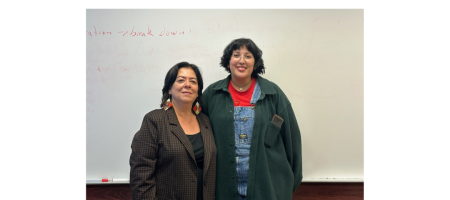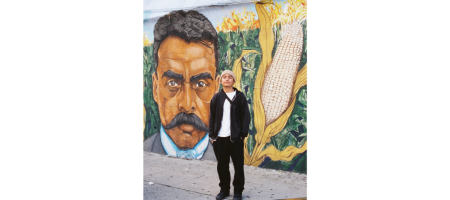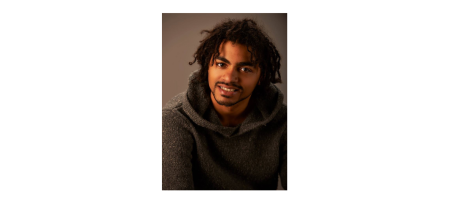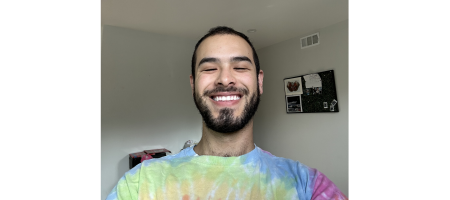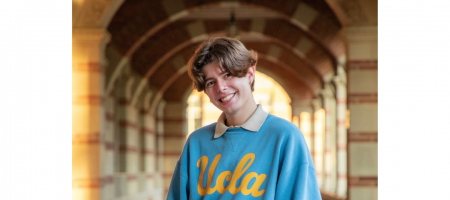Meet UCLA undergraduate researcher Milagro Jones!
Milagro majors in English and is in the Mellon Mays Undergraduate Fellowship. The title of his project is “Defining Drill: Multiple Meanings, Metaphors, and Memes.” Milagro’s work honors the legacy of authors and poets from Dro City and other parts of Chicago by treating their contributions to literature with empathy and respect. His best piece of advice is that research is for everyone and you can find a meaningful way to participate in research as a UCLA student.
How did you first get interested in your research project?
I first got interested in researching Drill Music in the Transfer Summer Program. Students like myself were told by professors like Dr. Huehls and Dr. San Juan to research something that we cared about. Part of the process of finding a topic was “me-search,” or looking within to research me and what I am passionate about. I care a lot about my brothers in the streets, and many of the authors and poets of Drill Music have passed on and will never get the opportunity to attend a University like UCLA. I want to honor the legacy of artists from Dro City and other parts of Chicago by treating their contributions to literature with empathy and respect.
What has been the most exciting aspect of your research so far?
The most exciting part of research has been presenting through opportunities provided by the Mellon Mays Undergraduate Fellowship. My research has evolved since I began, and receiving feedback from those who attended my presentations, including my faculty mentor, has helped me shape the direction in which I want my research to go. When I began researching Drill Music, I strongly felt like I had to keep it in conversation with an Epic from the traditional English Canon such as Beowulf for example. Feedback from my faculty mentor, Dr. Adam Bradley, and others has helped me to realize that classic works of Drill Music can stand on their own as works of literature worthy to be studied.
What has surprised you about your research or the research process?
The major thing that surprised me is the way in which acclimating to a university environment impacts the way in which I relate to the material I am studying. I am from an environment similar to the one in which the subjects of my research describe in the literature they’ve produced. In layman’s terms, I’m from the ghetto, and it feels disorienting to research literature produced in the ghetto from the vantage point of a university. Spending time in the privileged environment of academia has created a distance between me and the literature I am studying that forces me to question how to approach my subject in an ethical and authentic way.
What is one piece of advice you have for other UCLA students thinking about doing research?
I was cautioned that research isn’t for everybody and told that I didn’t have to pursue research if I didn’t want to. I would express to students the opposite. Research is for everybody, and traditionally, students like myself, a formerly incarcerated single father who got his GED in a correctional facility, are not included in the research process as independent scholars. UCLA, the Undergraduate Research Center – Humanities, Arts, and Social Sciences, and the Mellon Mays Undergraduate Fellowship program are doing something radically transformative by providing an opportunity for independent research to students of all backgrounds. Whatever your story and your passion, you can find a meaningful way to express yourself and contribute to the wealth of knowledge as a student here at UCLA.
What effect do you hope your research has in your field, at UCLA, in your community, or in the world?
I hope to continue researching Drill Music through the humanities lens of English Literature. In my field, I hope to contribute to the first Norton Anthology of Gang Literature. At UCLA, I hope that my work will influence others to consider that gang literature is literature and Drill Music, specifically a subgenre of Hip Hop created by gang members who are as talented as any of the celebrated poets of the traditional English Canon. I want to see Pacman and King Louie’s names in the English Reading Room next to Emily Dickinson, William Blake, William Wordsworth, and John Keats. In the community, I want the kids growing up in the housing projects and hoods to know that UCLA is a University for them. I want the world to know that Drill Music started in Dro City.


